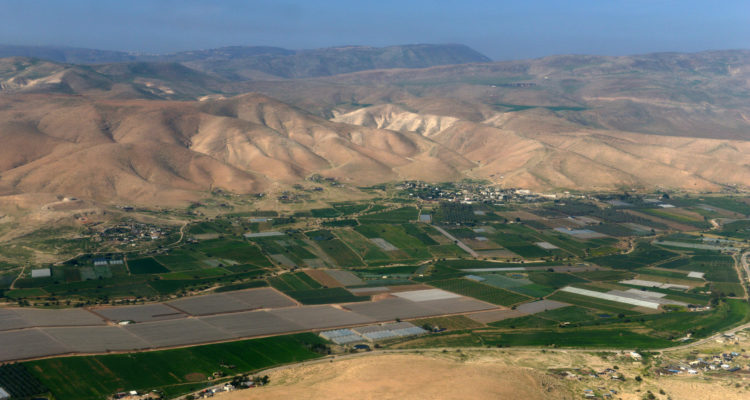Arava Regional Council Head Eyal Bloom implored the prime minister to intervene on behalf of the farmers who worked the lands leased from Jordan.
By Batya Jerenberg, World Israel News
If Jordan reclaims the land it leased to Israel 24 years ago, it will cause serious damage to the state’s security as well as destroy dozens of farmers’ livelihood, warned Eyal Bloom, Central Arava Regional Council head, on Monday.
“This means the collapse of 30 farms on an area of 1,400 dunams [346 acres],” Bloom said. “I call upon the Prime Minister of Israel to resolve this crisis immediately. Since, apart from the importance of the land for agriculture, it constitutes a buffer between the settled areas of the Arava and the State of Jordan and due to their location they are critical for the security of the region and the state.”
The Arava refers to an arid region running from south of the Dead Sea to the Red Sea. It forms part of the border between Israel and Jordan. Over decades, Israel has turned the harsh terrain into an agricultural wonder.
Israel caught off-guard
Jordan’s King Abdullah took Israel by surprise when he messaged Israel’s Foreign Ministry on Sunday informing it that he had decided “to end Article 2 of Annex I (b) of the Jordan-Israel Peace Treaty.” The section refers to two areas of land covering a total of about 405 hectares (1,000 acres). Israel ceded the area to their Arab neighbor in the framework of the 1994 peace agreement, in which Jordan agreed to lease it back to Jewish farmers for a period of 25 years.
Israeli Prime Minister Benjamin Netanyahu reacted quickly to the announcement, saying that talks would begin immediately on ways to reach agreement regarding the areas. Agriculture Minister Uri Ariel sought to reassure the farmers, telling them that the government would not abandon them if the land was returned.
Jordan wants Galilee lands
Jordan also wants northern lands near Naharayim and the Kinneret, or Sea of Galilee. Used for agriculture, it also contains two tourist sites – “Path of the Dams,” a nature walk, and the “Isle of Peace,” both of which overlook the Hashemite Kingdom.
The latter became infamous when seven Israeli girls were gunned down by a Jordanian soldier there during a school trip in 1997. The murderer, Ahmad Daqamseh, was convicted and sentenced to 20 years in prison. He was released in 2017 to a hero’s welcome among Jordan’s public.
The king’s decision is attributed to pressure from Jordan’s parliament, recent mass demonstrations and a social media drive against the continued lease of land to Israel. In a Friday protest, participants shouted, “The people want national honor,” and “The story is about national sovereignty.”
A campaign on Twitter featured a countdown clock ticking away the days until the treaty’s deadline to inform Israel of its cancellation. King Abdullah notified Israel exactly one year before the lease ends, as the treaty stipulates.
The advance notice opens up the possibility for intense negotiations. Israel’s leverage includes the tens of millions of cubic meters of water it supplies the Kingdom each year. Israel also allows Jordanian planes to fly over its airspace.





